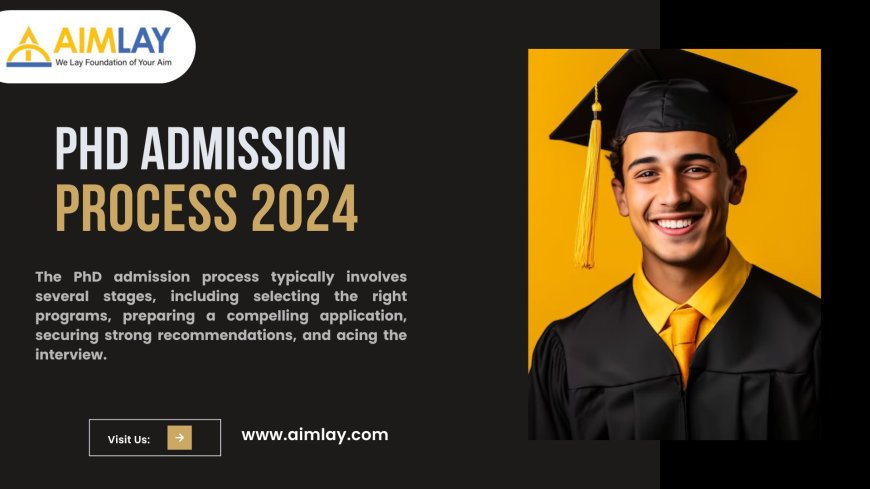Navigating PhD Admissions 2024: Your Ultimate Guide to Success
The PhD admission process typically involves several stages, including selecting the right programs, preparing a compelling application, securing strong recommendations, and acing the interview.

Introduction
Getting a PhD is a significant academic and professional milestone. The 2024 PhD admissions cycle is highly competitive, with many aspiring scholars vying for a limited number of spots. This guide aims to provide you with comprehensive insights and actionable tips to help you navigate the PhD admission process successfully.
Understanding the PhD Admission Process
The PhD admission process typically involves several stages, including selecting the right programs, preparing a compelling application, securing strong recommendations, and acing the interview. Each stage is crucial and requires careful planning and execution.
1. Choosing the Right Program
Start by identifying your research interests and finding programs that align with them. Consider the following factors:
- Faculty Expertise: Look for faculty members whose research interests match yours. Their mentorship will be invaluable.
- Program Reputation: Research the program's reputation in your field. High-ranking programs often have better resources and networking opportunities.
- Funding Opportunities: Investigate available funding options such as scholarships, assistantships, and grants.
2. Crafting a Strong Application
Your application is your first impression on the admissions committee. It typically includes:
- Statement of Purpose (SOP): Clearly articulate your research interests, career goals, and why you are a good fit for the program.
- Research Proposal: Outline your proposed research project. Be specific about your research questions, methodology, and potential impact.
- CV/Resume: Highlight your academic achievements, research experience, publications, and relevant work experience.
- Transcripts: Provide official transcripts from all previous academic institutions.
3. Securing Strong Letters of Recommendation
Letters of recommendation are critical in showcasing your academic capabilities and potential. Choose recommenders who:
- Know You Well: Select individuals who can speak in detail about your abilities and accomplishments.
- Are Respected in Their Field: Letters from well-known academics can carry significant weight.
- Can Provide Specific Examples: General praise is less effective than specific examples of your achievements and skills.
4. Preparing for the Interview
If you are shortlisted, you will likely be invited for an interview. To prepare:
- Research the Program: Be familiar with the faculty, their research, and the program’s strengths.
- Practice Common Questions: Be ready to discuss your research interests, why you chose this program, and your long-term goals.
- Prepare Questions: Show your interest by asking thoughtful questions about the program and faculty.
Key Deadlines and Timelines
PhD application deadlines vary by program, but they typically fall between December and February. Here’s a general timeline to help you stay on track:
- Spring/Summer 2023: Start researching programs and preparing for standardized tests (if required).
- Summer 2023: Begin drafting your SOP, research proposal, and CV.
- Fall 2023: Request letters of recommendation and finalize your application materials.
- Winter 2023/2024: Submit applications and prepare for potential interviews.
- Spring 2024: Attend interviews and await decisions.
Conclusion
The PhD admission process is rigorous, but with careful planning and dedication, you can enhance your chances of success. Focus on finding the right fit for your research interests, crafting a strong application, securing strong recommendations, and preparing thoroughly for interviews. Remember, persistence and passion for your field are your greatest assets. Good luck with your PhD admissions journey in 2024.












